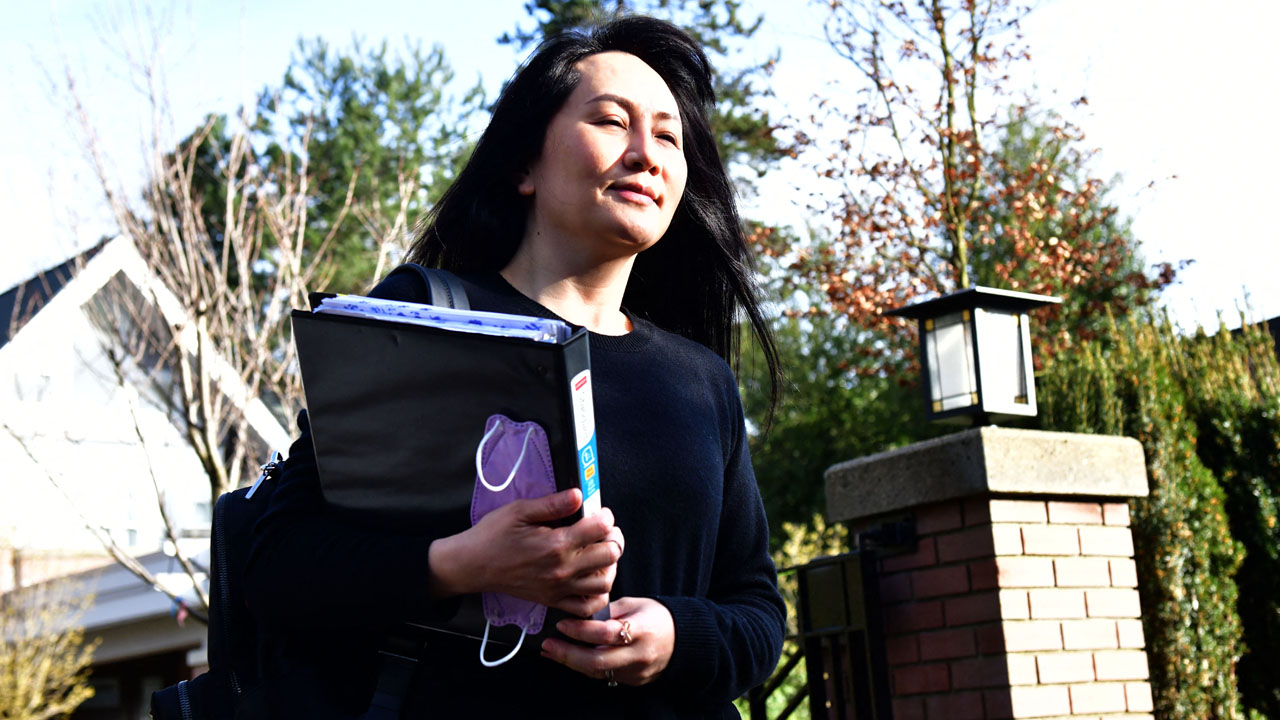
Canada’s attorney general on Thursday fired back at defense accusations of US jurisdictional overreach in Huawei chief financial officer Meng Wanzhou’s extradition case, saying the issue is ultimately for a trial judge to decide.
Meng’s lawyers argued this week that her alleged crimes took place in Hong Kong and had no direct link to the United States.
If Canada sends her to the United States to face trial on bank fraud and conspiracy charges, they further argued, it would be violating international law on legal jurisdictions.
Canadian government lawyer Robert Frater said the jurisdiction matter must be left to Canada’s justice minister — who has the final say on extraditions — and a US trial judge.
“This is a matter that can really only be properly litigated before a US trial judge,” Frater said, adding that the defense arguments’ “flaws run so wide and so deep I scarcely know where to begin.”
For more than two years, the Chinese businesswoman has been fighting being sent to the United States, which alleges she misled investment bank HSBC by distancing Huawei from its subsidiary Skycom and its activities in Iran that breached US sanctions.
Both Meng and Huawei deny any wrongdoing.
Meng arrest lawful
The defense also conceded this week that Canada’s arrest of Meng was required under its extradition treaty with the United States, but with hindsight, she should now be released.
“Ms Meng’s detention was required by the extradition treaty, so it can’t be regarded as unlawful initially,” said defence lawyer Gib van Ert. “What we’re saying now is the detention is revealed now to be unlawful… (because) it is founded on the unlawfulness of the extradition request itself.”
Van Ert said that HSBC’s US$2 million in loans after Meng’s meeting with HSBC executives at a Hong Kong tea room did not cause any US harm.
“How much impact did these transactions actually have on the US financial system?” asked van Ert. “In my submission, the answer is… very nearly no impact as a percentage.
“Had someone just flown to London and paid cash, we wouldn’t be here because there would be no connection to the US at all.”
Canada’s lawyer countered that countries can prosecute crimes committed internationally if there is any impact on them and that HSBC was put at risk because it continued providing banking services to Huawei and Skycom based on Meng’s assurances.
Meng’s “lies in the tea room have a consequence: the creation of legal risk that takes place in the United States and gives the requesting state the ability to prosecute,” Frater said.
Meng will next appear on April 26. Her extradition hearings are scheduled to end on May 14, barring appeals.



